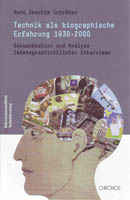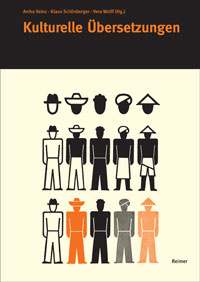Elektrizität
Die Ausgabe 30.4 (November 2015) der Zeitschrift Cultural Anthropology widmet sich in fünf Artikeln der Geschichte und Gegenwart der Elektrizität:
Featured in this issue is our second Openings collection, “Anthropology Electric,” part of Cultural Anthropology’s new Openings and Retrospectives section. Dominic Boyer introduces the collection, which developed from a panel at the 2013 annual meeting of the American Anthropological Association, and discusses electricity’s past and potential influence on theory in anthropology and the human sciences. Mike Anusas and Tim Ingold issue a call to think more expansively about electricity as phenomenon of matter and life, beyond its co-optation by corporate industry and neoliberal statecraft. Akhil Gupta turns his attention to the global South—where the fastest growth in electrical demand is coming from expanding middle classes—and discusses whether the developmental trajectories of electricity in the South can avert the eco-suicidal path of the global North. Tanja Winther and Hal White argue for bringing the material-social entanglements of electricity more fully into discussions of modernity, describing in particular how the arrival of electric light creates new conditions of possibility for power and mobility. Finally, Canay Özden-Schilling examines several cultures of expertise surrounding electricity, revealing how the material and infrastructural qualities of electricity alter conventional understandings of commodities, economics, and markets.
Featured in this issue is our second Openings collection, “Anthropology Electric,” part of Cultural Anthropology’s new Openings and Retrospectives section. Dominic Boyer introduces the collection, which developed from a panel at the 2013 annual meeting of the American Anthropological Association, and discusses electricity’s past and potential influence on theory in anthropology and the human sciences. Mike Anusas and Tim Ingold issue a call to think more expansively about electricity as phenomenon of matter and life, beyond its co-optation by corporate industry and neoliberal statecraft. Akhil Gupta turns his attention to the global South—where the fastest growth in electrical demand is coming from expanding middle classes—and discusses whether the developmental trajectories of electricity in the South can avert the eco-suicidal path of the global North. Tanja Winther and Hal White argue for bringing the material-social entanglements of electricity more fully into discussions of modernity, describing in particular how the arrival of electric light creates new conditions of possibility for power and mobility. Finally, Canay Özden-Schilling examines several cultures of expertise surrounding electricity, revealing how the material and infrastructural qualities of electricity alter conventional understandings of commodities, economics, and markets.
amischerikow - 21. Nov, 12:18

















